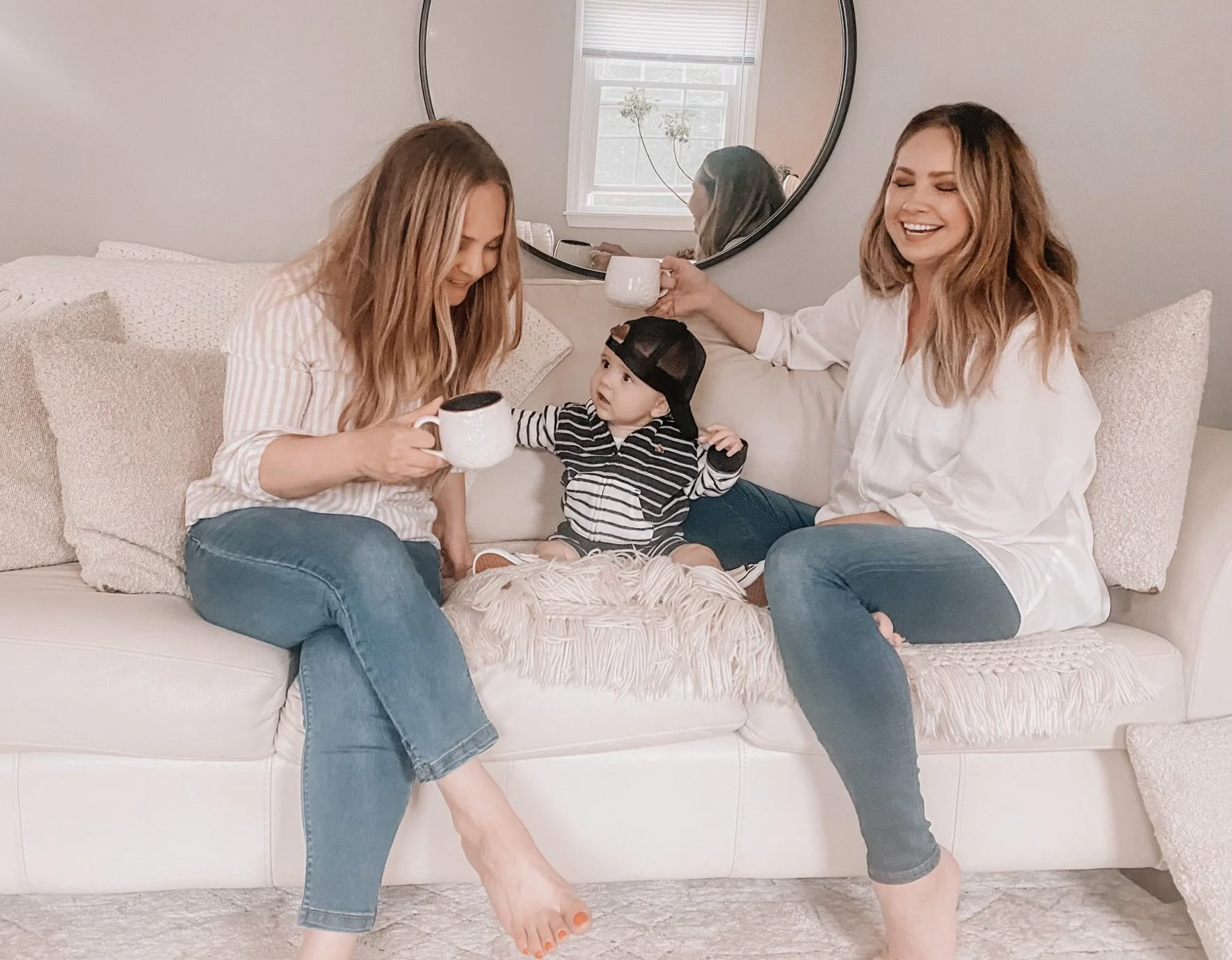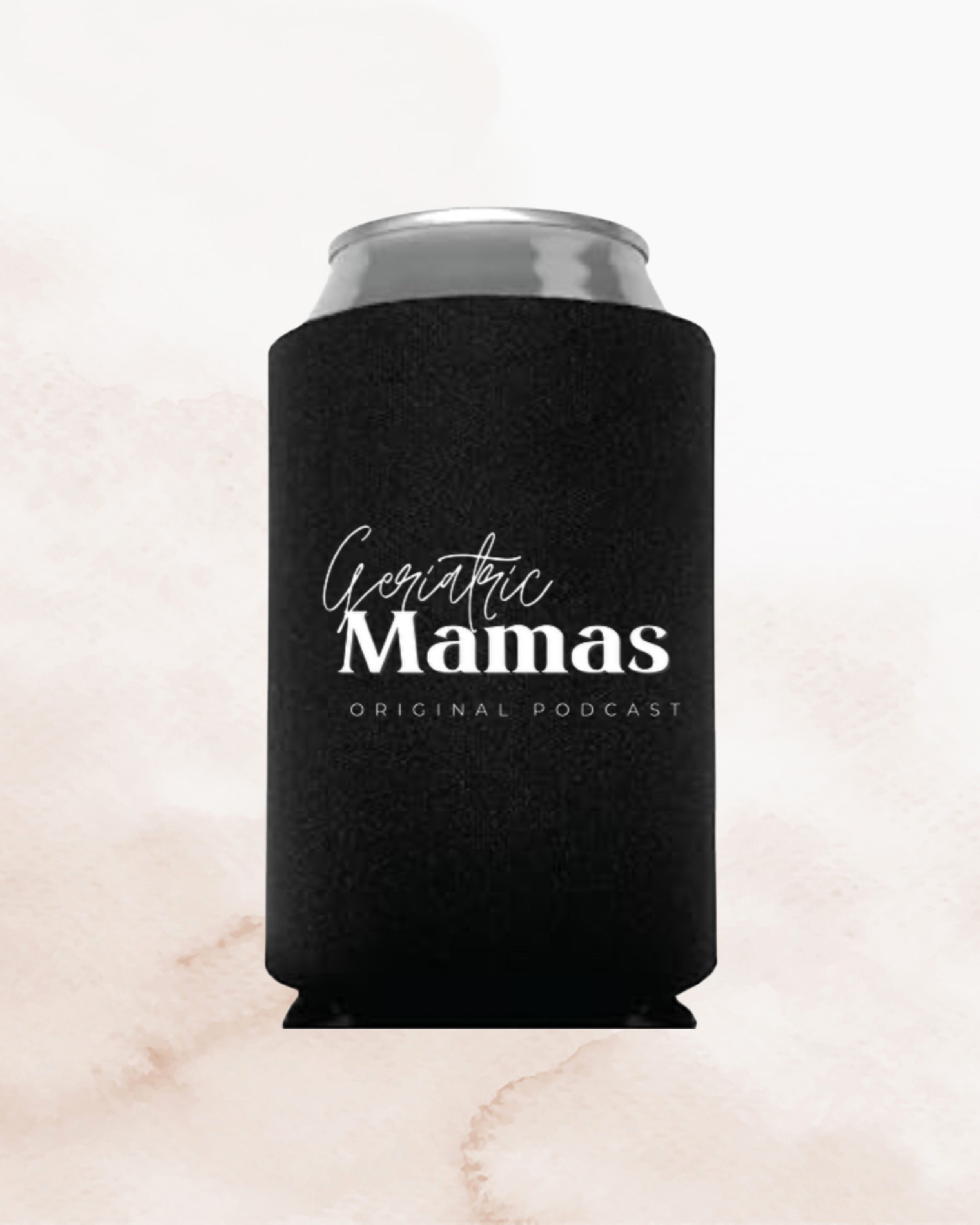Forty & Fertile AF!
On this episode, Sonia and Jessica discuss some of the latest fertility and longevity information; also, Sportscaster Erin Andrews is teaming up with Enfamil to announce a $50,000 commitment to Baby Quest, the Patients of shuttered fertility clinic are shocked to learn the man who treated them was not a licensed medical doctor; and giving birth at an ‘advanced maternal age’ may have a huge perk… Listen as they weigh in! Also… don’t forget to follow @Geriatric_Mamas on ‘TikTack’!
Topics Discussed on This Episode:
Welcome to Forty & Fertile AF! (20:22 )
More on Psyllium Husk From The Last Coffee Convos (20:48)
Erin Andrews Says She’s Found Comfort In Sharing Her Experiences with Fertility & Motherhood (28:40)
Women With Fertility Issues Are Getting Pregnant After Using Popular Weight Loss Drugs (37:02)
Does Serotonin Increase Fertility? (48:53)
Patients of Shuttered Fertility Clinic Were Treated by Someone Who Was Not a Licensed Medical Doctor (54:22)
Are Women Who Have Babies Later in Life Living Longer?! (1:01:23)
Resources mentioned in this episode:
Erin Andrews Says She's 'Found Comfort in Being Really Honest' About Fertility and Motherhood (Exclusive from People.com by Angela Andeloro)
Erin Andrews says she's found being vulnerable about fertility struggles, IVF, surrogacy, and now mom life, has afforded her a new community. She’s raising awareness of the struggles many families face in welcoming children.
The Emmy-winning sportscaster, 45, is teaming up with Enfamil Enspire Optimum to announce a $50,000 commitment to Baby Quest, an organization that provides financial assistance to those who cannot afford the high costs of fertility treatments.
Andrews says her fertility journey, which included several unsuccessful rounds of in vitro fertilization (IVF) before turning to surrogacy, has helped her learn to be open and honest about her experiences. (People.com)
Women with fertility problems getting pregnant after using Ozempic, but more studies are needed (the Atlanta Journal-Constitution by Madison Muller)
A surprising thing is happening to some women on weight-loss drugs who’ve struggled with fertility issues: They’re getting pregnant. That’s leading to questions about the safety of medications from Novo Nordisk A/S and Eli Lilly & Co. during pregnancy.
“I thought I couldn’t have any more kids,” said Torria Leggett, who’s 40, and had been trying for another baby after her first child was born in 2018. In 2022, the social worker from Whiteville, North Carolina, began taking Novo’s Ozempic to treat obesity, then switched to Lilly’s Mounjaro. As the pounds melted off, there was soon another reason to celebrate. She was expecting.
So far, the safety data look promising. A recent study of the health records of 50,000 women with Type 2 diabetes found no increase in birth defects among those who used the drugs in very early pregnancy compared with those who took insulin. (ajc.com)
Pregnancy & Obesity: Know the Risks:
Could having a high BMI affect my ability to get pregnant?
Having a high BMI can harm fertility by inhibiting regular ovulation. Even in women who regularly ovulate, the higher the BMI, the longer it may take to become pregnant. Some research also suggests that a higher BMI is associated with an increased risk of unsuccessful in vitro fertilization (IVF). (MayoClinic.org)
From Neuroscience.com, Serotonin Boosts Fertility:
Summary:
Researchers uncovered a crucial link between glucose levels, serotonin signaling, and fertility. By studying rats and goats, the team discovered that increased glucose availability stimulates serotonergic neurons, enhancing the release of reproductive hormones via the activation of kisspeptin neurons.
This finding not only deepens our understanding of reproductive health but also suggests potential treatments for fertility issues in people with depression. The research highlights the significant role of diet and serotonin in maintaining reproductive function and offers a new avenue for addressing depression-related infertility using SSRIs.
Key Facts:
Glucose and Serotonin Interaction: Elevated glucose levels in the brain stimulate serotonin release, which in turn activates kisspeptin neurons crucial for reproductive hormone release.
Implications for Reproductive Health: The study explains the biological mechanism behind fertility issues related to poor nutrition and provides insights into the decreased fertility observed in individuals with depression.
Potential Treatments: The findings suggest that SSRIs, commonly used to treat depression, could also enhance fertility by improving serotonergic signaling, offering a dual-purpose treatment strategy. (NeuroscienceNews.com)
NASHVILLE, Tenn. (WTVF) — Stunning new allegations against the Nashville fertility clinic being sued by the Tennessee Attorney General.
As reported, the Center for Reproductive Health abruptly shut its doors last month after failing to pay its employees.
The sudden closure of the clinic left patients with a lot of questions. What would they do about their care going forward? And what would happen to the embryos that were stored at the clinic?
Here's another one: Why did the man who treated so many of these women hold himself out to be a doctor when he is not?
Giving Birth Later on May Mean You Live Longer, Says Study (People.com by Anna Halkidis)
New research finds that women who give birth at an older age may live longer. Here's why.
As the number of women having kids 30 and over is on the rise, a new study suggests they may have an advantage: a longer life.
The research, published in October 2020 in Menopause, the journal of the North American Menopause Society (NAMS), found that those who delivered their last child at an older age were likely to have longer telomeres.
To break down the science: telomeres are described as “DNA-protein complexes that protect the ends of chromosomes.” They are considered a “biomarker of long-term health and longevity.” Shorter telomeres have been linked to more diseases and poor survival, according to research published in Current Opinion in Clinical Nutrition & Metabolic Care. And the rate at which telomeres shorten can be increased or decreased by lifestyle choices, including diet and activities. (People.com)
Reminder: Listeners can receive 20% off services at Ageless Medical Aesthetics in Westbrook, ME with Code: MAMAS2024 when you follow them on instagram! Also receive a Free First Swim Class at Goldfish Swim in Portland, Maine with same code: MAMAS2024; you’ll need to call them to schedule your little one’s first class.
Thanks for listening and checking out the show notes!
Please follow, subscribe, rate and review the Geriatric Mamas!
Tell a friend! We need your support!
You can follow us on instagram at @geriatric_mamas, on Twitter at @geriatricmamas, and follow our facebook page and our Geriatric Mamas group page.
If you have a topic idea you’d like us to discuss, are interested in being a guest, or simply have a funny geriatric story to tell, you can let us know HERE!
Check out the Geriatric Mamas Swag!
Have a question, comment or correction for the first episode of Geriatric Mamas? Leave it for us here!
Send Us Your Story!
Calling all geriatric mamas! We're looking for women of advanced maternal age who are pregnant, trying to get pregnant, battling infertility, have gone through surrogacy, fostering, adoption or have plans to be a mama in the future to share their stories! Would you like to write in your story or possibly be a guest on the show? We would love to hear from you!
We now also want to hear about your ‘crusty ovaries’ and ‘moldy eggs’!
Has a Doctor ever said some crazy shit to explain your geriatric fertility situation?! Please share it with us below so that we can weigh in on an upcoming episode!
Disclaimer:
Please consult your physician for personalized medical and health advice. Always seek the advice of a physician or other qualified healthcare provider with any questions regarding a medical condition, your pregnancy, birth plan and post-partum treatments.
Never disregard or delay seeking professional medical advice or treatment because of something you have heard on the Geriatric Mamas podcast or website.





